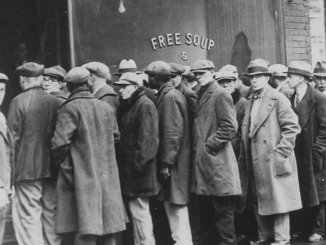Goldman Sachs (NYSE:GS) has become exhibit number one in attacks on Wall Street and capitalist greed. Last week’s announcement that the bank had strong third-quarter earnings and is on track to pay big bonuses added to the media feeding frenzy.
Let’s look at the logic – to the extent there is logic – in the mass fury. The assault on Goldman contains at least three, related but distinct, complaints.
- The bank’s profits are not just obscene but the result of reckless bets. “Goldman is back to business as usual: making money by high-risk gambling,” writes Frank Rich in the NYT, to pick one out of a herd of writers sounding the same theme.
Since an investment bank’s function is to profit by taking on certain risks, this criticism implies that there should not be much in the way of investment banking. But to the extent investment banking is profitable, it will always attract people. If the activities are discouraged in the US, they will happen elsewhere. Is that what the left-liberal critics want?
- Taxpayers are underwriting Goldman’s, well, goldmine. “Your tax dollars, their big bonuses,” headlined an article.
Goldman paid back the public money that the government insisted it take when the failure of Lehman Brothers paralyzed financial markets last Fall. Interventions by the Federal Reserve and the Treasury probably did boost Goldman’s bottom line. Systemic risk is one rationale for the interventions—see below for the real solution.
- Goldman’s lavish bonuses are immoral – or at least unpleasant to contemplate by those of us with no bonuses – especially at a time like this with millions unemployed. “Just amazing! Goldman Sachs has set aside $16.8 billion for employee bonuses,” says a blogger.
Now, what does that observation imply? That the bank should not earmark so much money for employee bonuses, in which case it would retain the earnings. If you think Goldman needs to add more capital to its balance sheet, that makes sense. But the populist critics don’t seem interested in whether Goldman needs to keep the money in its coffers.
Rather, they object to its having so much in the first place. So the issue comes back to profits—if Goldman were not so profitable, it would not be able to pay outsized bonuses.
The way extraordinary profits erode is through competition. If instead of a single Goldman there were 30 Goldmanettes, they’d compete for business and in the process drive down returns. Moreover, no single one would be important enough to pose risk to the rest of the economy if it were to fail. No systemic risk; no need for government intervention.
The government, with its policy of encouraging consolidation, has of course fostered monopoly power and Goldman’s profits. Still, small investment banks are playing a greater role in the market, not just in the US but worldwide. In time, as long as government policies don’t inhibit competition, the mini-Goldmans will encroach upon Goldman’s money-making alchemy and its giant bonuses—incidentally depriving pundits of an ever-juicy topic to latch on to.
This is the way capitalism creates wealth; maybe not the best way, but better than anything else that mankind has discovered so far.
- Bulenox: Get 45% to 91% OFF ... Use Discount Code: UNO
- Risk Our Money Not Yours | Get 50% to 90% OFF ... Use Discount Code: MMBVBKSM
Disclaimer: This page contains affiliate links. If you choose to make a purchase after clicking a link, we may receive a commission at no additional cost to you. Thank you for your support!




Leave a Reply